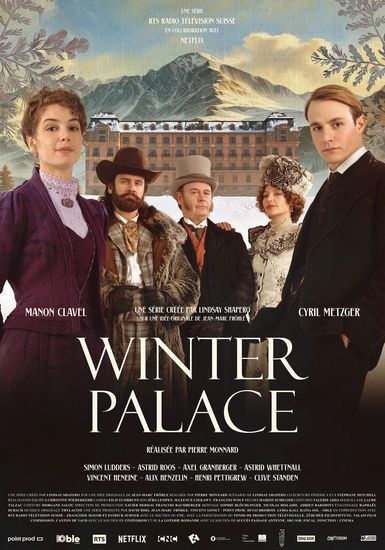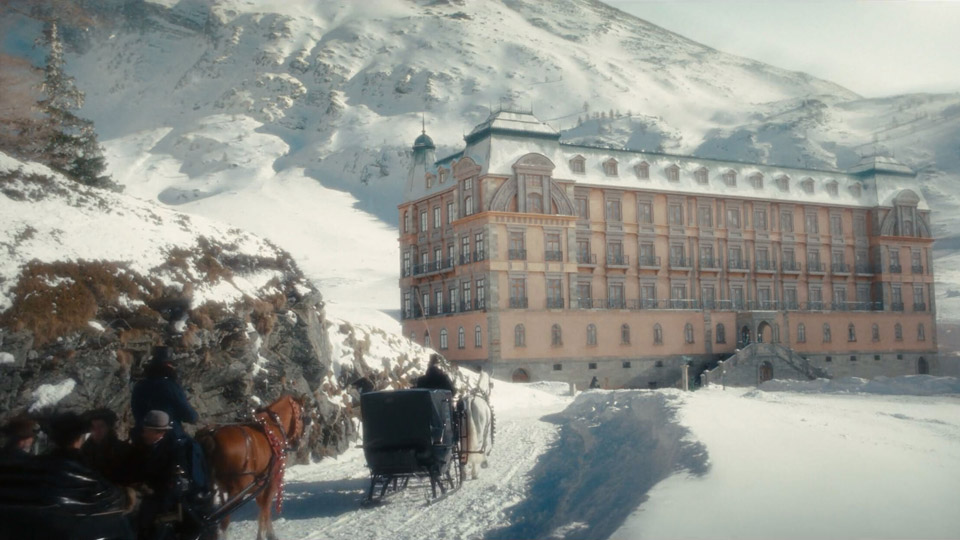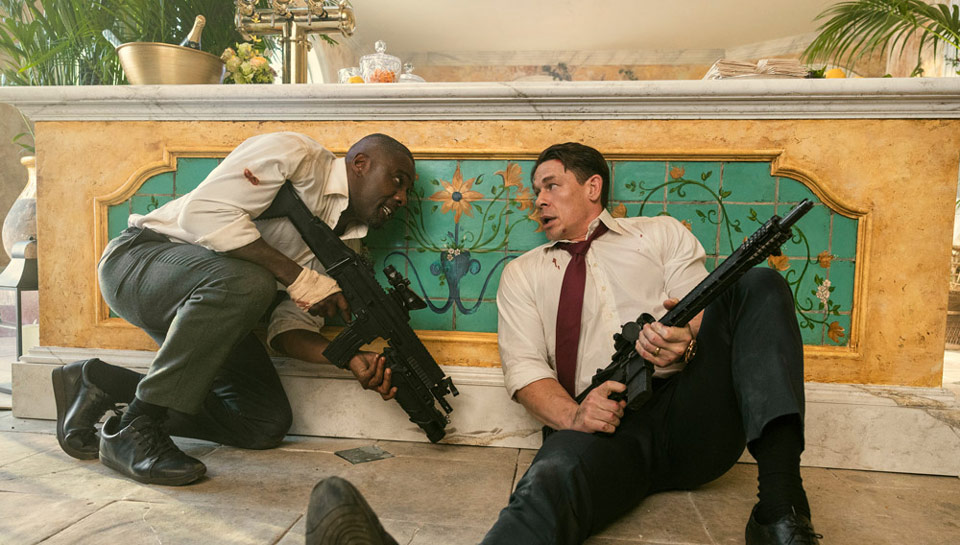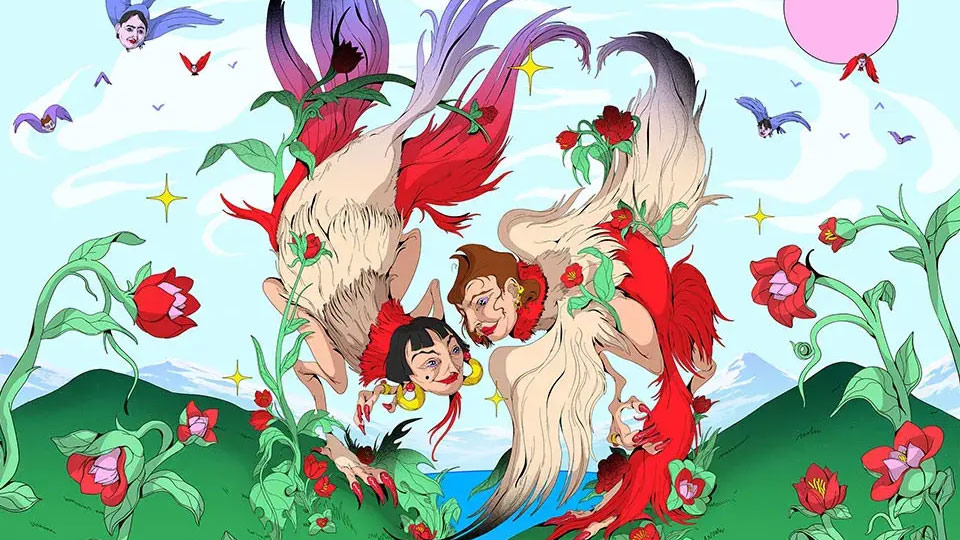Where does the original idea for “Winter Palace’’ come from?
Hugo Brisbois: The idea is freely inspired by the life of one of the first hoteliers who opened an establishment in the Alps throughout winter. His name was Johannes Badrutt, and he opened the Kulm Hotel in St. Moritz, in the Swiss canton of Graubünden. Back then, all the hotels in the area only opened in summer, operating as sanatoriums. People would come for treatments, etc. “Winter Palace’’ tells the story of the first winter holiday season, as we know it nowadays.
What was it like back then?
It was very rudimentary at the time. It was the early days of wooden skis and there were no ski lifts yet, so you had to walk up the slopes. The series also shows the folklore that was just emerging, with a wealthy clientele mainly made up of Anglo-Saxon lords who came to invest in Switzerland. The country quickly positioned itself in the luxury market, attracting a fairly well-off clientele. The entire history of Swiss hospitality was also built upon winter tourism.
It took six years to develop the series. How do you explain that?
“Winter Palace’’ is an international co-production. Initially, the series was developed by the Swiss production company Point Prod, in partnership with the public broadcaster RTS (Radio Télévision Suisse). However, the series could not be financed entirely at the local level, the budget being too high compared to the local productions’ standards. Therefore, international financing had to be found and that’s where Oble came in. We then got in contact with Netflix, which turned the series into an international production, bringing in many French talents, such as costume designer Valérie Adda (“Women at War’’) and composer Thylacine. The visual special effects were also done in France and the lead female role is played by Manon Clavel (“The Truth’’). We really tried to inject a bit of “French Touch” into the series
Did Oble serve as a link between Netflix and the Swiss production?
Precisely. We came in to help co-finance the series and make it more eventful, more international than if it had been 100% Swiss. That was our expertise on this project, even though the work done in a population base as small as French-speaking Switzerland was already impressive. However, their industry is less structured than ours. As for Netflix, the series had to resonate internationally because there is a two-fold challenge for the platform: the series must shine both locally and abroad. When Netflix makes an investment like the one made in “Winter Palace’’, they are looking for a good audience in Switzerland that can resonate in the rest of the world, particularly in some key neighboring countries like France, Germany or Italy.
Is the series 100% historically accurate?
We worked with Evelyne Lüthi-Graf, former director of the Swiss Hotel Archives, to recreate the period. We discussed with her a lot with the aim of closely reflecting reality. At the same time, we couldn’t strictly stick to it. We are making a fiction series, not a documentary, so there are a few anachronisms.
How would you describe the universe and atmosphere of “Winter Palace’’?
The series is a costume drama, but the dialogues make it very modern. The characters speak as they would these days. I like to draw a parallel, with the humility it requires, between “Winter palace’’ and “The White Lotus’’: both series depict this dichotomy between very wealthy clients with their little games and the more modest hotel staff who face different issues. Their narrative arcs collide around our two main characters, André and Rose, the managers, who have to oversee their teams and ensure the well-being of their clients.
How did the shooting at altitude go?
The exterior shots were mainly filmed in the Upper Valais at an altitude of 2,000 meters. We found the building for “Winter Palace’’ at the Simplon Pass, which leads to Italy. There is an old and huge hospice at the top that we used as a setting for our hotel, adding VFX. Obviously, filming at altitude comes with many challenges, especially since there were poor weather conditions in early 2024. It snowed a lot in January, then it didn’t snow at all. So, it wasn’t easy for continuity. The impact of climate change on our series was clear! Nevertheless, we were lucky because we didn’t have to cancel a single day of filming.
How did you manage the cold and the weather in general?
It was not easy because there was a lot of waiting on set. We hid some heaters under the actors' costumes. Then, to bring in the equipment, we had a logistics base in the valley, in Berg. The teams would go up to the pass every morning and come back down every evening. The road to the Simplon Pass is an important traffic route, well cleared of snow, and that’s also why we chose to shoot there.
Where did you film the interiors?
We filmed a little in a studio, but most of the interiors were shot near Montreux, in a hotel management school where we were able to recreate them. The school was thrilled to host us because the series reflects Switzerland’s long-established tradition of hospitality.
Winter Palace (8x45’)

With Cyril Metzger, Manon Clavel, Clive Standen...
Written by Stéphane Mitchell and Lindsay Shapero
Directed by Pierre Monnard, Christine Wiederkehr
Produced by Jean-Marc Fröhle, Vincent Gonet, David Rihs, Hugo Brisbois, Lydia Kali and Katia Sol
Companies: Netflix, Point Prod (Switzerland) and Oble Studios (France)
Available on Netflix starting February 13, 2025
Selective support from the CNC: Audiovisual support fund (Preparation support – selective), Production support – selective





